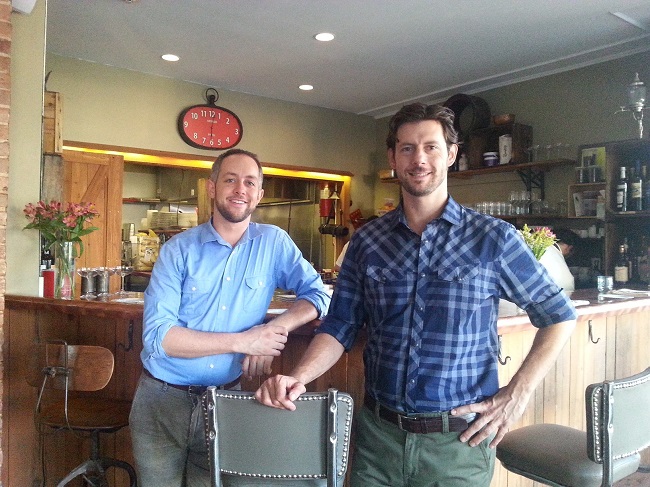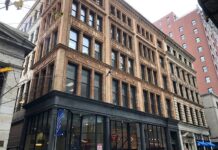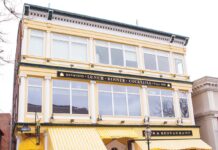
NEWPORT – The owners and operators of the Stoneacre Hospitality Group are in the process of seeking approval from city officials to transform the commercial property located at 144-150 Thames St. into a mixed-use development, including a music museum, theater, retail space and nine residential units.
The property was most recently the location of an Express retail clothing store that shuttered in 2020. It was also the site of an early 20th-century vaudeville theater, the remnants of which are still in the upper portion of the building.
According to plans filed at City Hall in August, Fennel Fronds LLC, whose principal is Stoneacre co-owner Christopher Bender, is seeking a special-use permit and variances from the zoning code that require review from the city’s Planning Board and approval from the Zoning Board.
The application states the project’s music museum will be run by a nonprofit corporation “with the mission of restoring and honoring the musical arts in downtown Newport.” The nonprofit Music Museum was incorporated in 2021, according to the R.I. Secretary of State’s online database.
“The second floor of the project will include theater space, in which the Colonial Theatre will be restored and made functional for the first time in decades,” according to the application.
The residential units are planned for the second and third floors of the property, including four market-rate apartments and five condominiums for purchase.
The petition summary argues the development is in line with the city’s Comprehensive Land Use Plan, which promotes the revitalization of defunct buildings in the city’s commercial areas and “actions which protect and enhance the community’s historical and cultural resources.”
“The project will add a unique and culturally significant destination to the heart of downtown Newport,” according to the petition. “The project’s use as both a museum and a theater is the type of innovative concept that will help drive the economy of downtown Newport and the city as a whole.”
In addition, the petition claims the incorporation of the nine residential units will “help mitigate the low housing stock in the city.”
Plans submitted in the application packet by Newport-based Herk Works Architecture, the firm tapped for the project’s design, show five one- and two-bedroom rental units around 1,000 square feet apiece; the condominiums on the third floor range between three and four bedrooms and are approximately 1,700 to 2,100 square feet in size.
The Colonial Theatre, which began as a vaudeville performance venue and was later a cinema operated by the E.M. Loews theater chain, was opened in 1911 and closed in 1940.
The area surrounding Washington Square on the corner of Thames Street and Broadway was once known as the city’s theater district, which also included the Opera House, a separate venue that is now in the process of being rehabilitated by the nonprofit Newport Performing Arts Center.
Both Bender and Stoneacre co-owner David Crowell are being sued by the U.S. Department of Labor for multiple violations of the Fair Labor Standards Act, including wage theft and the misclassification of employees to exempt them from overtime pay. U.S. Labor Secretary Marty Walsh has requested a jury trial and the litigation is ongoing.
Requests for comment on the status of the petition sent to Newport Zoning Officer Guy Weston and Fennel Fronds attorney John Russell, of Adler Pollock & Sheehan PC, were not immediately returned.
Christopher Allen is a PBN staff writer. You may contact him at Allen@PBN.com.












